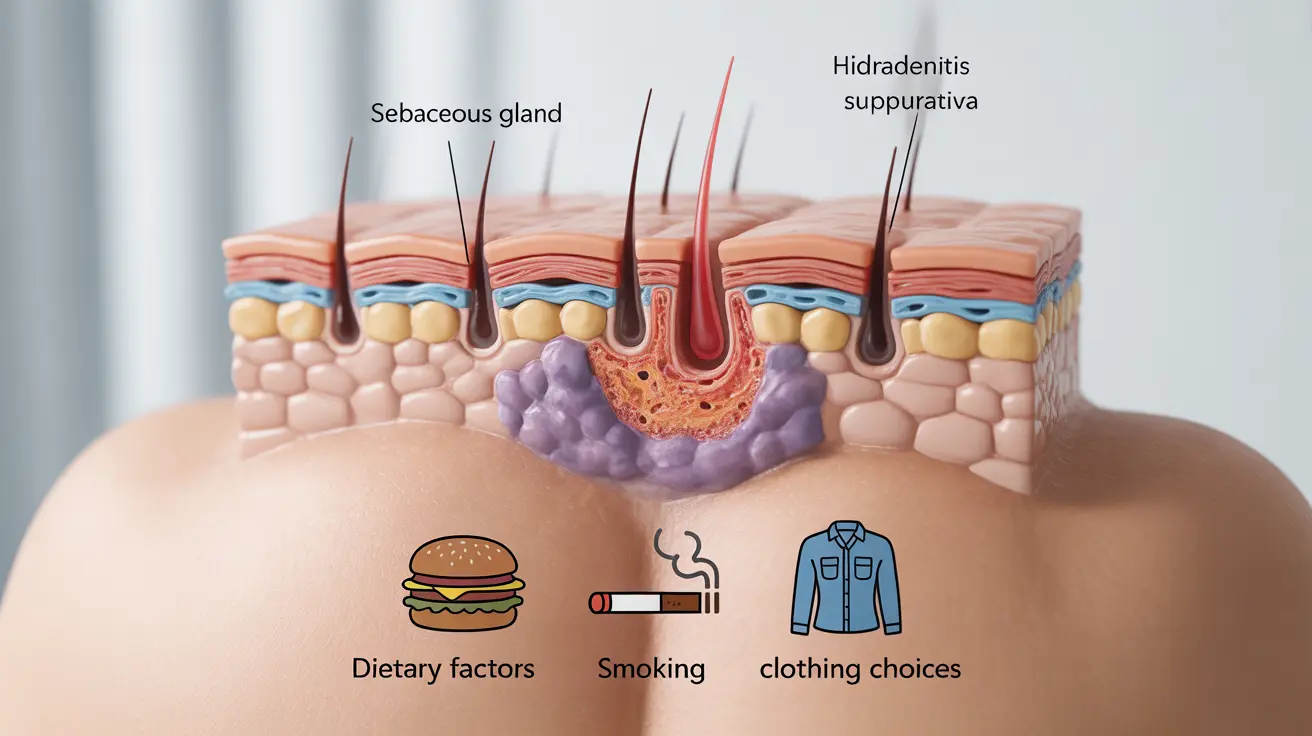Hidradenitis suppurativa (HS) is a chronic inflammatory skin condition that can significantly impact quality of life. Understanding the various triggers that can worsen symptoms is crucial for better disease management. From dietary choices to lifestyle factors, identifying and avoiding these triggers can help reduce flare-ups and improve overall well-being.
Dietary Factors and HS Symptoms
What you eat can have a substantial impact on hidradenitis suppurativa symptoms. Research suggests that certain foods may trigger inflammation and worsen flare-ups. Common dietary triggers include:
- Dairy products
- Refined carbohydrates
- Processed foods
- Foods high in added sugars
- Brewer's yeast
- Nightshade vegetables (in some cases)
Many patients find relief by maintaining a food diary and working with healthcare providers to identify specific dietary triggers. An anti-inflammatory diet rich in whole foods, vegetables, and lean proteins may help reduce symptom severity.
The Impact of Weight on HS Management
Excess body weight has been strongly linked to hidradenitis suppurativa severity. Fat tissue produces inflammatory substances that can exacerbate symptoms and increase the frequency of flare-ups. Studies show that weight loss through healthy diet and exercise can lead to significant improvement in HS symptoms for many patients.
Clothing and Environmental Factors
The physical environment and clothing choices can significantly influence HS symptoms. Key considerations include:
- Avoiding tight-fitting clothing that causes friction
- Choosing breathable, natural fabrics
- Managing sweating through proper hygiene
- Avoiding harsh chemicals and irritating fabrics
Making mindful choices about clothing and maintaining good hygiene practices can help reduce the risk of flare-ups.
Smoking and HS: A Critical Connection
Smoking is one of the most significant modifiable risk factors for hidradenitis suppurativa. Tobacco use can:
- Increase inflammation throughout the body
- Impair immune system function
- Slow wound healing
- Worsen existing symptoms
Research shows that quitting smoking can lead to notable improvement in HS symptoms and reduce the frequency of flare-ups.
Hormonal Influences and Stress Management
Hormonal fluctuations and stress levels can significantly impact HS symptoms. Many patients report flare-ups during:
- Menstrual cycles
- Pregnancy
- Periods of high stress
- Major life changes
Developing effective stress management techniques and working with healthcare providers to address hormonal concerns can help reduce symptom severity.
Frequently Asked Questions
What foods are common triggers that can worsen hidradenitis suppurativa symptoms?
Common dietary triggers include dairy products, refined carbohydrates, processed foods, added sugars, and brewer's yeast. Some patients may also react to nightshade vegetables.
How does obesity influence the severity of hidradenitis suppurativa and can weight loss help?
Obesity can increase inflammation and worsen HS symptoms due to excess fat tissue producing inflammatory substances. Studies show that weight loss through healthy lifestyle changes can significantly improve symptoms in many patients.
Can wearing tight clothing or sweating contribute to hidradenitis suppurativa flare-ups?
Yes, tight clothing can cause friction and irritation, while excessive sweating can create an environment that may trigger flare-ups. Wearing loose, breathable clothing and maintaining good hygiene can help manage these triggers.
Why is smoking considered a major trigger for hidradenitis suppurativa and how does quitting affect symptoms?
Smoking increases inflammation, impairs immune function, and slows healing. Quitting smoking can lead to significant improvement in HS symptoms and reduce flare-up frequency.
How do hormonal changes and stress affect hidradenitis suppurativa flare-ups?
Hormonal fluctuations during menstrual cycles, pregnancy, and periods of high stress can trigger HS flare-ups. Managing stress and working with healthcare providers to address hormonal issues can help control symptoms.




